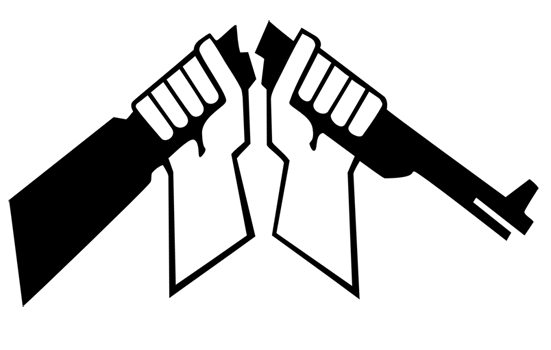The right to refuse military service during both peace and war is a universal human right. The right to conscientious objection is seen as part of freedom of thought, conscience and religion. States with compulsory military service must either dismiss conscientious objectors or provide them with a non-military service that respects their conviction. In Finland, a number of human rights violations still occur in exercise of the right to refuse military service.
Conscientious objection as part of freedom of thought, conscience and religion
The right to conscientious objection is enshrined in the United Nations Declaration on Human Rights and in Article 18 of the Convention on Civil and Political Rights, freedom of thought, conscience and religion. The United Nations Commission on Human Rights, which monitors compliance with the treaty, highlights this in its general comments on the article, in its country reports and in its judgments.
The UN Human Rights Council and the European Court of Human Rights also interpret conscientious objection as part of this freedom.
International human rights bodies have outlined that the imprisonment of conscientious objectors is an arbitrary restriction of freedom of thought, conscience and religion.
Civilian service must be respectful for the conscientious objector
If a state has military service, it must either dismiss conscientious objectors or provide them with alternative non-militarised service. According to human rights guidelines, civilian service must be respectful for conscientious objector, under civilian authority, serve the public interest and not punitive to military service.
Civilian service cannot be imposed except on those who, because of their beliefs, are unable to perform military service. For example, compulsory civilian service for most of the citizens society would probably be illegal labor.
There are several human rights issues in the Finnish conscription system
In its most recent periodic report on Finland in 2013, the UN Commission on Human Rights called for Finland to extend the special treatment granted to Jehovah's Witnesses to other arms denial groups. In its statement, the Committee also drew attention to the duration of civilian service and urged Finland to ensure that its length or alternative service are not punitive. The UN Human Rights Council has also drawn attention to the same points in its latest periodic review of Finland and calls for the release of the total objector prisoners.
Finland abolished the Jehovah's Witnesses Exemption Law in the spring of 2019. Thus, Finland acted in a manner completely contrary to the demands of the UN human rights bodies. As a result of this law there are wider group of persons in Finland who are at risk of getting a half years of imprisonment to freedom of thought, conscience and the use of conscientious objection within the scope of freedom of religion. The UN Human Rights Committee will draw the conclusions of its next regular report on Finland in the autumn of 2020.
In Finland, civilian service is more than twice as long as the shortest conscript service. According to human rights guidelines, civilian service must not be punitive compared to military service. If the lengnts of services are different, this must be based on a beliable and objective basis. According to the AKL, the total length of service should be the most important measure when comparing the forms of service together, and the AKL does not see any reason why civilian service should be longer than the shortest or at least average military service.
In 2017, the UN Human Rights Council called on Finland to ensure that civilian service remains under civilian control. There are several military authorities in the bodies that influence civil service legislation. For example, the Civilian Service Advisory Board has members from the Ministry of Defense, the General Headquarters and the Union Of Conscripts. The same parties also participated in the working group on the needs for amending the Civilian Service Act in 2017-18.
Proposals of military authorities for the development of civilian service have neglected the basis of civilian service as a form of service for conscientious objectors, and have sought to make it more of a crisis service. However, linking civilian service to military crises calls into question civilian service as an appropriate form of service for conscientious objectors. Currently, the Civilian Service Act contains sections on crisis service. According to the AKL, they should be eliminated and those who refuse during the crisis should be treated like other civilians, ie through the Emergency Law.
There have also been significant shortcomings in the provision of information on conscientious objection in Finland before, during and after military service. AKL has gathered experiences from call-ups who have received insufficient information on alternatives to military service. During military service, information on transitioning to civilian service is virtually non-existent and must be retrieved by yourself. In addition, illegal retardation or pressure is often encountered in the transition to civilian service. AKL has also gathered these experiences. The Human Rights Council's resolution highlights the lack of of information on conscientious objection. The Human Rights Committee has also addressed this issue in its final conclusions.
Beliefs examination is still in place when applying for civilian service under special circumstances. This problematic practice has not been specifically prohibited in human rights interpretations, but its process has been carefully regulated. The AKL insists that under no circumstances should the conduct a beliefs examination in Finland. The UN Human Rights Council has also welcomed the fact that the beliefs are not examined separately.
